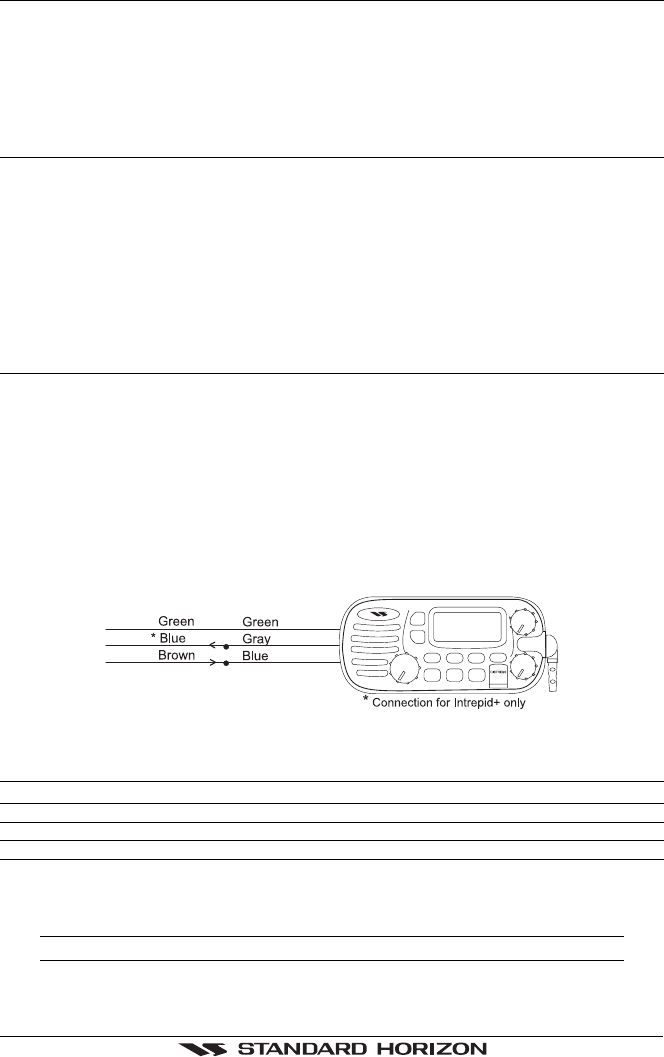
Page 20 GPS chartplotters
2.5 BATTERY CONNECTIONS
1. The GPS chartplotter is supplied with a fuse and holder. This fuse should be installed
into the Black wire to protect the NMEA output/input circuits from becoming damaged.
2. Connect the Red and Black wires from the GPS chartplotter and the GPS antenna
together and route to a 12VDC source as direct as possible,
2.6 NMEA CONNECTIONS
The GPS chartplotter can be connected external devices with NMEA and display informa-
tion, examples:
- DSC VHF Radio
- Optional FF520 Dual frequency Black Box Fish Finder
- Depth Sounder, Speed Log, Wind Instrument, AutoPilot etc.
- Radar
- Personal Computer
2.7 GPS POSITION ON A VHF RADIO
STANDARD HORIZON has pioneered Digital Selective Calling (DSC) on VHF radios.
Advancements in DSC have made it possible to show the coordinates of a vessel that has
transmitted a DSC Distress Call or even Poll the location of another vessel and show the
position of that vessel on the display of STANDARD HORIZON VHFs.
STANDARD HORIZON has taken this feature one step further, if the Standard Horizon GPS
chartplotter is connected a STANDARD HORIZON DSC capable VHF, the vessel in
Distress or the polled position of the vessel is shown on the display of the GPS chartplotter,
making it easy to navigate to the location of the vessel. This is a great feature that could save
someone’s life or for anyone wanting to know the position of another vessel.
Figure 2.7 - GPS Position on a VHF Radio Connections
Other DSC VHF Manufactures
GPS Chartplotter Description VHF
Green NMEA Common Ground Connect to NMEA Ground
Brown NMEA Positive Output Connect to NMEA Input
Blue NMEA Positive Input * Connect to NMEA Output (if available)
* Some manufactures of DSC VHF’s are not capable to receiving DSC information from the GPS
chartplotter.
Refer to the owner’s manual of the VHF.
NOTE
Refer to VHF Digital Selective Calling section for operation.


















